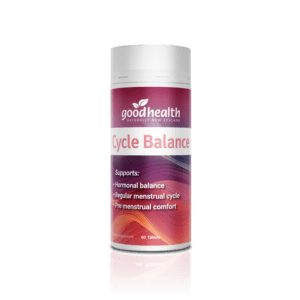
Why does it seem like every woman, these days, is coping with menstrual issues? Are we supposed to just take it and be resigned to the fact that it is part of being female, or are there things we can do to support our reproductive system and menstrual cycle? In this short article we will cover some of the basics regarding issues that can arise with menstruation and supportive things to try. For a more in-depth and science-heavy dive into this topic, see The 3 Ms and the Female Hormonal Life Cycle, Part 2—Menstruation (link at bottom of page).

The Female Hormonal Cycle
Research has shown that over 90% of women in the western world have one or more issues with their menstrual cycle balance. Infertility is increasing, and the only answer appears to be hormone therapy, or even surgery, which can lead to, often serious, side effects.
In traditional healing practices, it is thought that a woman’s periods should come and go with as much ease as the sun rising and setting. They consider it abnormal for a woman to experience any trouble with any part of her menstrual cycle. There should be little to no mood swings, irritability, pain, spotting, breast or tummy discomfort, skin breakouts, or digestive upsets, etc., prior to menstruation, and the period should be comfortable with little to no clotting and last no more than 5-6 days. They should be relatively regular, as close to a 28-day cycle as possible. Ovulation should occur every month, and there should be no irregular or excessive bleeding or a complete absence of a monthly period. If any of these things are occurring, traditional practice considers this to be caused by an imbalance somewhere in the body, with hormones and metabolism.
A healthy woman of reproductive age should be fertile. That does not mean to say that an unhealthy woman cannot get pregnant, but we can tell a lot about the overall health of a woman by her menstrual cycle. She may or may not be truly fertile, but there will often be signs pointing to imbalance or dysfunction in her body. These things can be addressed through diet and lifestyle factors and by choosing effective nutrient or herbal supplements.
Infertility is prevalent in regions of the world with high rates of blood sugar dysregulation and metabolic dysfunction. This includes the United States, Great Britain, Australia, and New Zealand. Metabolic dysfunction affects reproductive physiology, including egg (oocyte) development, ovulation, and implantation. It particularly affects the balance of reproductive hormones, essential for healthy reproductive function.
Hormonal Balance Disrupters

Stress is a big problem for reproductive hormone balance because when we are stressed, our bodies deprioritise “nonessential” functions like reproduction, causing oxidation processes to get out of control. Research has shown that constant stress downregulates reproductive hormone production and/or throws them out of balance. Rampant oxidation can cause or worsen reproductive and hormonal issues. Research also shows us that reproductive hormone health is heavily influenced by our circadian rhythm—the daily, natural light and dark cycles and its chief hormones—melatonin and cortisol, along with leptin.
A healthy liver is essential for the metabolism and management of reproductive hormones. The health of the liver is affected by the health of the body’s metabolism. It has been demonstrated that in a model of dysregulated metabolism and unhealthy liver function, high or recirculating oestrogens can stimulate the adrenal glands without pituitary involvement, leading to an increase in adrenal androgens and an increase in body hair growth and other male characteristics. Oestrogens (chiefly oestradiol, at this point) need to be produced, do their job at the right time, and then get out of dodge, so to speak.
The health of the thyroid also affects reproductive function and metabolism. Nutrients that support liver and thyroid health include choline, copper, iodine, selenium, zinc, and vitamins B1, B3, B6, A, D3, and folate. Iodine is especially important to support the health of all reproductive tissue, and true vitamin A (retinol) is essential to support reproductive function.
Our modern lifestyle, with our high ultra-processed food diets, high stress, lack of sunlight, and exposure to pollution, chemicals, and artificial light, especially at night, could be to blame for our high rates of reproductive issues. Blue light exposure, chemical and air pollution, alcohol consumption, central adiposity, obesity, inflammation, consumption of refined sugar and seed/vegetable oils, medications, nutrient deficiencies, etc., have all been shown in research to cause or exacerbate serious metabolic dysfunction and negatively impact liver health (and other organs) with downstream effects on reproduction and hormonal balance. Hormonal balance means that the ratios of hormones to other hormones are correct so that the reproductive system, the menstrual cycle, and the whole body can function as they should.
What You Can Do to Support a Balanced Menstrual Cycle
Addressing diet and lifestyle factors is essential if we want to support our reproductive function and menstrual cycle. Switching to a whole food diet, rich in nutrient-dense animal foods and traditionally prepared, seasonal plant foods, will mean your body has the best chance to obtain all the nutrients it needs to function and regenerate. Appropriate exercise has been shown in innumerable studies to support not only our reproductive and menstrual health but our whole body. Appropriate exposure to sunlight, safely, throughout the day is essential for hormone regulation, and meditative and inner bonding practices, along with connection to the earth and other humans, have been shown to support our response to stress. For more on what you can do to support your hormones, see Ancestral Wisdom for Female Hormonal Health, Part 1 and Part 2.

In terms of supplements, herbs have a long history of use in traditional practice and can be a wonderful support for female hormones.
Introducing: Good Health Cycle Balance
Good Health Cycle Balance is a unique blend of 6 synergistic herbs at scientifically researched doses, including kelp (for iodine), designed to support a healthy menstrual cycle, balanced hormones, and premenstrual and period comfort. Dong quai, bupleurum, paeony, ginger, and liquorice have long been used by women of reproductive age in traditional Chinese practice, and research has shown them to support a healthy hormonal balance, blood flow, uterine tone, menstrual comfort, and liver function. A healthy liver is essential to support the metabolism of oestrogens. Cycle Balance supports the nervous and hormonal systems for healthy mood, skin, and breast comfort. The thyroid and adrenals are also supported, as they are essential for healthy reproductive function.
Cycle Balance supports:
- Hormonal balance
- Period comfort
- Regular menstrual cycle
- Premenstrual and breast comfort
- Healthy blood flow
- Liver, thyroid, and adrenal function
- Healthy mood and skin
If you are at all concerned with any part of your reproductive and/or hormonal life, please see your GP or connect with a natural health professional to personalise your diet, lifestyle, and herbal supplements.
Click the following articles in the Women’s Health Series for more detailed information about Female hormonal health:
The 3 Ms and the Female Hormonal Life Cycle, Part 1 – Menarche
The 3 Ms and the Female Hormonal Life Cycle, Part 2 – Menstruation
The 3 Ms and the Female Hormonal Life Cycle, Part 3 – Menopause
Ancestral Wisdom for Female Hormonal Health, Part 1
Ancestral Wisdom for Female Hormonal Health, Part 2
